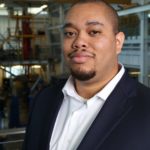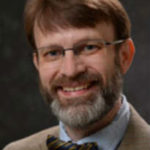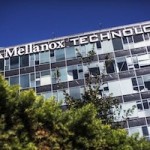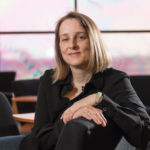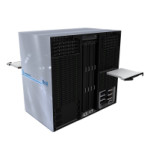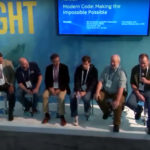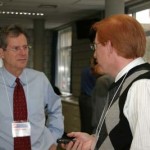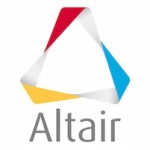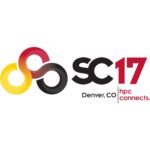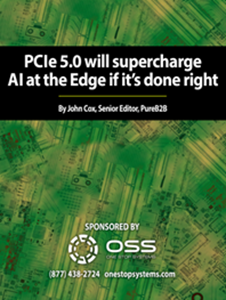Scientists typically understand data through graphs and visualizations. But is it possible to use sound to interpret complex information? This video from Georgia Tech’s Asegun Henry shows the Sonification of the vibrations of an atom in crystalline silicon. “If you look at the data, it looks like white noise,” Henry said. “We decided to sonify the data, and as soon as we listened to it, we could hear the pattern.”
Archives for January 2017
Video: A Look at the Lincoln Laboratory Supercomputing Center
“Guided by the principles of interactive supercomputing, Lincoln Laboratory was responsible for a lot of the early work on machine learning and neural networks. We now have a world-class group investigating speech and video processing as well as machine language topics including theoretical foundations, algorithms and applications. In the process, we are changing the way we go about computing. Over the years we have tended to assign a specific systems to service a discrete market, audience or project. But today those once highly specialized systems are becoming increasingly heterogeneous. Users are interacting with computational resources that exhibit a high degree of autonomy. The system, not the user, decides on the computer hardware and software that will be used for the job.”
Job of the Week: HPC Application Performance Engineer at Mellanox
“Mellanox Technologies is looking for a talented engineer to lead datacenter application performance optimization and benchmarking over Mellanox networking products. This individual will primarily work with marketing and engineering to execute low-level and application level benchmarks focused on High Performance Computing (HPC) open source and ISV applications in addition to providing software and hardware optimization recommendations. In addition, this individual will work closely with hardware and software partners, and customers to benchmark Mellanox products under different system configurations and workloads.”
PASC17 Plenary to Focus on Supercomputing Cosmology
Today the PASC17 Conference announced that this year’s plenary presentation will be entitled “Unlocking the Mysteries of the Universe with Supercomputers.” The plenary presentation will be given by Katrin Heitmann, Senior Member of the Computation Institute at the University of Chicago and the Kavli Institute for Physical Cosmology, USA.
Video: How Persistent Memory Will Bring an Entirely New Structure to Large Data Computing
“As data proliferation continues to explode, computing architectures are struggling to get the right data to the processor efficiently, both in terms of time and power. But what if the best solution to the problem is not faster data movement, but new architectures that can essentially move the processing instructions into the data? Persistent memory arrays present just such an opportunity. Like any significant change, however, there are challenges and obstacles that must be overcome. Industry veteran Steve Pawlowski will outline a vision for the future of computing and why persistent memory systems have the potential to be more revolutionary than perhaps anyone imagines.”
Atos Delivers Bull sequana Supercomputer to Hartree Centre
Today Atos announced the first installation of its Bull sequana X1000 new-generation supercomputer system in the UK at the Hartree Centre. Founded by the UK government, the Science and Technology Facilities Council (STFC) Hartree Centre is a high performance computing and data analytics research facility. Described as “the world’s most efficient supercomputer,” Bull sequana is an exascale-class computer capable of processing a billion billion operations per second while consuming 10 times less energy than current systems.
Video: Modern Code – Making the Impossible Possible
In this video, Rich Brueckner from insideHPC moderates a panel discussion on Code Modernization. “SC15 luminary panelists reflect on collaboration with Intel and how building on hardware and software standards facilitates performance on parallel platforms with greater ease and productivity. By sharing their experiences modernizing code we hope to shed light on what you might see from modernizing your own code.”
China Oceanwide to Acquire IDG & IDC
“We will be fully honoring all IDC HPC contracts and deliverables, and will continue our HPC operations as before,” said Earl Joseph of IDC. “Because the HPC group conducts sensitive business with governments, the group is being separated prior to the deal closing. It will be operated under new ownership that will be independent from the buyer of IDC to ensure that the group can continue to fully support government research requirements. The HPC group will continue to do business as usual, including research reports, client studies, and the HPC User Forums.”
Oracle Cloud to add PBS Works for Technical Computing
Today Altair announced plans to build and offer HPC solutions on the Oracle Cloud Platform. This follows Oracle’s decision to name Altair PBS Works as its preferred workload management solution for Oracle Cloud customers. “This move signals a big shift in strategy for Oracle, a company that abandoned the HPC market after it acquired Sun Microsystems in 2010.”
Call for Proposals: SC17 Workshops
The SC17 conference is now accepting proposals for independently planned full- or half-day workshops. SC17 will be held Nov. 12-17 in Denver.

